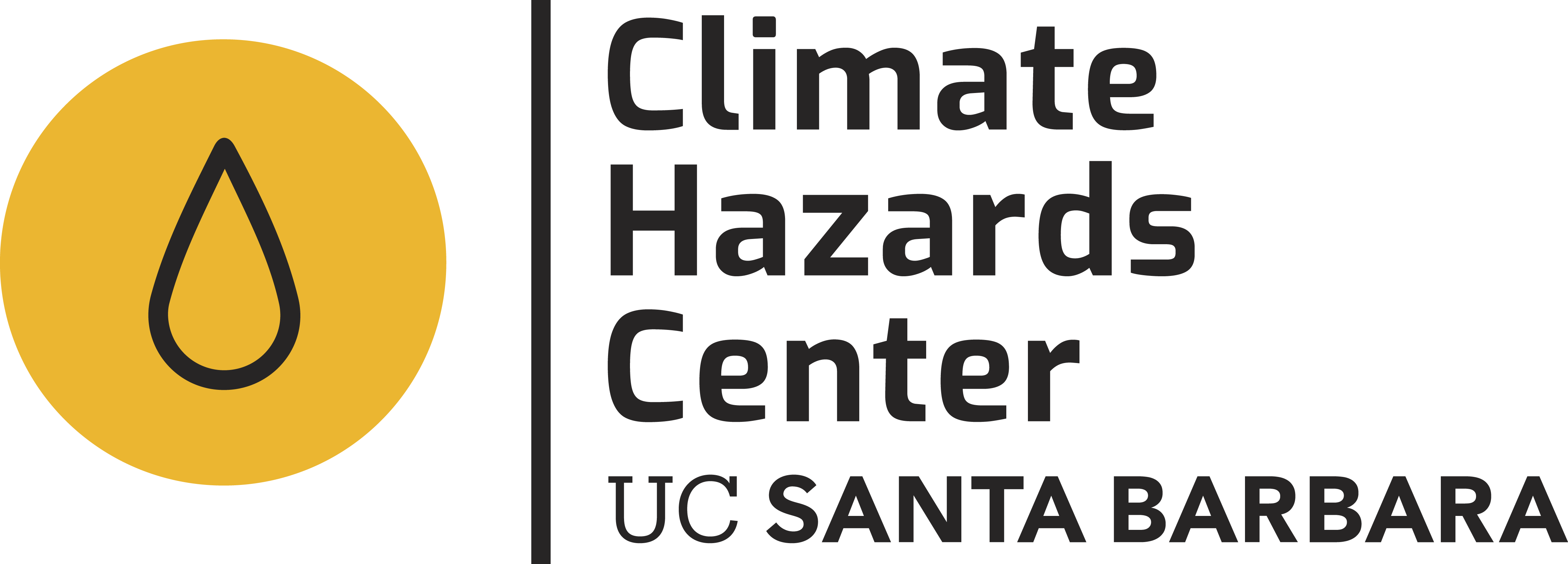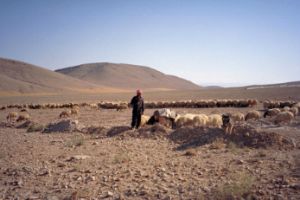Colin Kelley, now a post-doctoral researcher at the CHG, made headlines when his paper Climate change in the Fertile Crescent and implications of the recent Syrian drought" was published in the Proceedings of the National Academy of Sciences of the United States of America (PNAS).
Kelley, the lead author, did the research for the paper while he was a graduate research assistant at Columbia University's Lamont-Doherty Earth Observatory. The subject matter in the Syria paper was a natural transition for him, Kelley said, since his previous research at Lamont-Doherty focused on separating the climate change signal in the greater Mediterranean from the natural variability associated with the North Atlantic Oscillation (NAO). This research led him to show how the Eastern Mediterranean was unique as a region in that it was not under the influence of any major low-frequency teleconnections (El Nino, NAO, AMO, PDO, etc.), thus making the emerging climate signal easier to distinguish.
According to Kelley, one of the goals of the paper was to link the social science and climate science aspects of the region, something that had hitherto not been thoroughly examined in the literature. Yochanan Kushnir, director of the Cooperative Institute for Climate Applications and Research (CICAR) and a Doherty senior scientist, referred Kelley to Shahrzad Mohtadi, a social scientist who had done a lot of fieldwork in the region. Mohtadi was well-versed in the consequences of the recent severe drought, so she was an ideal co-author to help flesh out the link between drought, conflict, and social unrest.
Because of his research, Kelley was already aware that Syria was a unique case in terms of its clearly emerging climate signal. "We were also aware," he said, "of the editorials written by Thomas Friedman in the New York Times that argued that in each of the Arab Spring countries there was an overlooked environmental stress, different in each country, and we knew about the severe drought that occurred just prior to the uprising."
Kelley and his co-authors began their research by investigating how the degree to which the recent (2007-2010) Syrian drought was unusual/severe. Once that was established, they wanted to show how climate change caused the drought to be much more severe than it would have otherwise been. The paper went through several revisions before being accepted by PNAS for publication. The authors expanded the area of focus to the greater Fertile Crescent and more closely examining the station data to corroborate or assess the uncertainty in the gridded precipitation data used. Kelley and his co-authors compensated for the lack of pre-1950 station data in Syria by showing how stations in the region strongly covaried, giving confidence that the long term trends they saw in the gridded data (which relied more heavily on stations near Syria) were reliable. In addition, they more closely examined the mechanisms that brought about the drying. The end result was a paper that demonstrated how a very clear causal chain of events following the drought; specifically, an agricultural collapse, mass migration, and population shock to Syria's urban areas.
The clear casual chain of events is what caught the media's attention. For the first time, a peer-reviewed study had quantified a much-theorized link between human-induced climate change and modern conflict. Though the paper was under embargo until March 2nd, both the Earth Institute of Columbia University and UCSB issued press releases the preceding Thursday (February 26th) and calls from the media almost immediately came pouring in. Kelley estimates that he has personally spoken to about 30 media outlets, including newspapers, magazines, and radio stations and that his co-authors gave quite a few interviews themselves. Though some outlets were more interested in the social science aspects and others in climate science, the main focus of interest seemed to be on the novelty of the study and its findings.
Even the office of Senator Barbara Boxer expressed interest in the paper, requesting a copy of the paper in an email. The United Nations Development Programme (UNDP) Regional Centre in Cairo (RCC) praised the study and contacted Kelley regarding the possibility of future collaboration. Kelley said he had also been told that a representative of the UN High Commission on Refugees recently gave a talk on his paper at a conference on economics and security, but that has not yet been confirmed. Still, there has been a lot of high-level policy interest.
Photo courtesy of J. Werner
Originally published 03-04-2015
October 31, 2019 - 2:18pm

